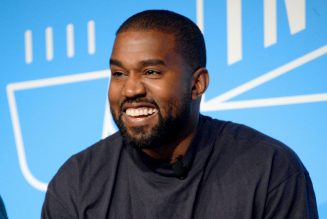Columnists
How to make retirement attractive
Tuesday July 04 2023
Cameroon’s President Paul Biya. FILE PHOTO | AFP
Evidence suggests that many African leaders dread retirement. Teodoro Obiang Nguema Mbasogo of Equatorial Guinea is the world’s longest-serving president since October 12, 1982.
He is less than one month longer in power than Paul Biya of Cameroon who has been president since November 6, 1982, having earlier served as the Prime Minister from 1975.
That makes Paul Biya, who is also the oldest head of state in the world, the longest consecutively serving current non-royal head of state in the world (47 years).
Yoweri Museveni has done 37 years and counting in Uganda, while Daniel arap Moi of Kenya did 24 years. In 2022, Central Organisation of Trade Unions secretary general Francis Atwoli once remarked that former President Uhuru Kenyatta was too young to retire from politics.
In the US, President Barrack Obama retired at 55, Bill Clinton at 54 and Theodore Roosevelt at 50. Ronald Reagan who retired at 77 is soon going to be overtaken by Joe Biden, who is currently 80.
However, in the US, retirement is not dreaded by national leaders; for the country’s system makes senior citizens enjoy retirement.
The US governments, for example, usually make resolutions to create libraries and foundations for their supporters, such as the Carter Centre and Jimmy Carter Library and Museum.
In Latin America, a president can serve a full term, take a break and then come back. Michelle Bachelet, the first Chilean female President served from 2006 until 2010, and then from 2014 to 2018.
Former US President Donald Trump is trying to achieve the same. In terms of retirement, UN civil servants and other international civil servants also enjoy a lot of privileges that are not accessible to national civil servants.
The question is, with the vast resources in Kenya, what then can be done to make retirement attractive?
Generally, health and financial well-being are important ingredients for the enjoyment of life in retirement. In addition to these are involved in volunteer charitable activities and hobbies.
But this is not all. As one of his strategic economic advisers, I once asked President Mwai Kibaki, as he was about to retire, about his take on it.
As he entered his limousine at Consolata Shrine after the Sunday Mass, he told me: “Freddie, how do I retire without politics and the economy, which have been my daily routine for the last 50 years?”
In short, he was concerned about how to retire actively without doing what had become his ‘second nature’ for the last 50 years.
Mr Kenyatta was the other day castigated for coming out to defend his party Jubilee. He was again ‘advised’ to retire, and reminded of the law that prohibits former heads of state from being involved in politics six months after leaving office.
But in Tanzania, Nyerere continued to lead CCM even after retirement from the presidency.
Mr Kenyatta has a retirement package just like what Kibaki and Moi had. The question is, what is it that makes him stick to politics even with the risk of losing these benefits? Is there something lacking in the constitutional retirement package provided?
Some senior citizens in the know, names withheld, intimated that the main reason is that the retirement packages granted are just but basic.
How can one expect Mr Kenyatta, for example, having been born in State House with politics as a way of his life from childhood to now, to live a different life?
Are we blind to the idiom that you cannot teach an old dog new tricks? The same applies to Opposition leader Raila Odinga. How can he retire from politics with a basic retirement package?
Having five vehicles with drivers and bodyguards but with nowhere to go or anything to do for public welfare can be torturous.
My crystal ball tells me that we need to go beyond the economic package and offer something additional like a social and academic environment so that these senior citizens who have dutifully served the country can retire productively.
A safe and secure retirement centre with sports facilities, a health spa for physical fitness and a fully equipped research centre would help them continue enriching the nation.
Here, they would document their memoirs and legacy as they educate and mentor young and emerging leaders at the same time.
If a ‘knowledge house’ akin to Chatham House could be set up, the latter that has hosted the likes of former vice president Moody Awori, former PS Mbathi Titus, Julia Ojiambo and Nyiva Mwendwa, this community of knowledgeable staff and others would make retirement more attractive and productive than it is currently.
Mr Kenyatta, Mr Odinga and others would willingly join them and together they would form book clubs and a community of practice in different fields, through which they would continue contributing to Kenya’s economic and political prosperity through proper channels.
They would read, research and publish. Luckily, even though younger people tend to get information from social media, research shows that books are the most read information material by 86 percent of Nairobians, followed by newspapers at 36 percent, with those aged 45 and above being the most frequent readers.
Methinks that offering this opportunity for retired politicians to continue contributing to Kenya’s development could be better than being forced to retire and contribute nothing to Kenya’s challenges, with the threat of losing retirement benefits and their hard-earned legacy in case of non-retirement from active politics.
Dr Ogola is the CEO of, the African Health & Economic Institute and Director of the Institute of Strategy and Competitiveness









